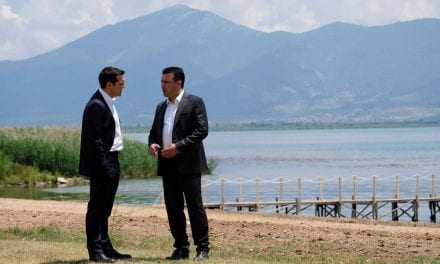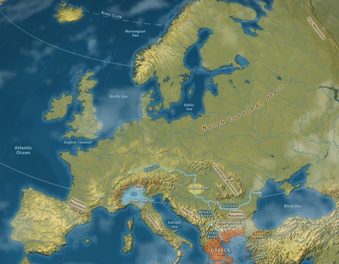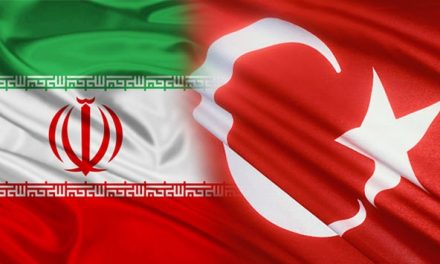By Keri Cohen,
aron David Miller offered his take on America, Israel and the Middle East at an event Nov. 9 at Temple Beth El that was co-sponsored by the JCRC/AJC.
For two decades, Miller served in the State Department as an analyst, negotiator and adviser on Middle Eastern issues to Republican and Democratic secretaries of state. Between 2003 and 2006, he also served as president of Seeds of Peace, a program in conflict resolution and coexistence.
Now, he is vice president for new initiatives and a Distinguished Fellow at the Woodrow Wilson International Center for Scholars in Washington, D.C. He also brings his thoughtful expertise to CNN as a commentator.
Before the program at Beth El, Miller stopped at the JN office for an interview that revealed vast knowledge and perspective. Here are some excerpts from his answers to a question about how American Jews view the prospects for peace in the Middle East. A full story will be printed in the Nov. 16 issue of the JN.
“Sensible people, Jews and non-Jews, would look at the Middle East and, unless you are really interminably obtuse, you have to come to the conclusion that prospects of anything remotely resembling a peace agreement, and I choose my words very carefully — I’m talking about a conflict-ending agreement, when the Israeli prime minister and Palestinian president would stand before their legislative bodies and say the following: ‘On the six core issues that drive our conflict — borders, security, refugees, Jerusalem, recognition of Israel as the nation-state of the Jews and the end of all claims and conflict — we’re done! No more issues to be adjudicated’ — the chances of that happening is a fantasy.
“You have an Israeli-Egyptian peace treaty that is highly functional and has fundamentally reshaped the nature of Israeli’s security predicament in the region; and paid off huge benefits to the Egyptians as well. You can’t look at this thing and say they have peace in the same way we have peace with Canada or Mexico. My strong recommendation is to give up your illusions and start looking at the world the way it is before you can begin to grapple with the way you want it to be.
“Every time we [Americans] fail, it’s because we looked at the world in the way we wanted it to be rather than the way it actually was. It’s true on North Korea, in dealing with Iranian regime and nuclear agreement, and it’s true in dealing with the Israeli-Palestinian issue. We have too many illusions as Americans because we don’t understand the world.
“I’m from a real estate family in Ohio and everything is location, location, location. If you want to understand American foreign policy, you have to understand where we are — sandwiched in between two non-predatory powers north and south. And fish to the east and west. These oceans, theses liquid assets, are key to understanding why we behave the way we do and why we continue to misunderstand what it’s like for smaller powers like Iran, Israel, the Palestinians, Egypt, and the medium-size powers like the Chinese and Russians. They are trapped by history and geography in a way we will never be and that critical distinction is why we consistently don’t understand the world and what it’s like to be a tiny power.
“I look at the world and say, ‘You don’t want to give up hope, but you have to be serious and real or you get in situations where you make mistakes and look silly.’ And we already have that problem. I don’t want to add to it. I see what I see. I don’t need AIPAC, ZOA or U.S. State Department to tell me what I should think.
“It’s a paradox.You have it within your power, without leaving your bedroom, to access more information, more perspective, more history, more sober analysis than we’ve had in the history of the world. And yet we are living in an environment in which either people are lazy or they want to believe what they want to believe. No one stretches beyond their tiny bubble. Palestinians don’t stretch. Israelis don’t stretch, Jews don’t stretch, Christians don’t stretch — it’s tough separating yourself from the tribe. If you don’t want to stretch and listen to what someone else has to say and you think you know it all, you wind up in trouble.
“My view of the world and for America is that the dividing line for U.S. foreign policy is not left or right, liberal or conservative, Republican or Democrat, it’s between dumb on one side and smart on the other. The only question is what side of the line do you want America to be on? Smart or dumb? If the smart side, there are things each of us can do to be on the smart side, but we insist on not doing it. This is really important.
“Do the Jews have a reason to worry? Jews worry for a living. And there’s a lot to be worried about. The thing I worry least about is Israel’s ability to take care of itself. Israel is an extraordinary country, resilient, vibrant, and it has agency. And it’s my view that Israelis don’t look at themselves as a victim, a piece of driftwood floating on some turbulent sea without any power to act. The Israelis know how good they are at what they do. They don’t trivialize their security problems, which are significant, but that’s also important for Americans and American Jews to understand: The reality is that we live on different planets. We are not Israelis and they are not us.
“The bond that links these two countries are deep and enduring. That notion that where you stand in life has a lot to do with where you sit — Americans and Israelis sit in fundamentally different places. I’ve had two Israeli prime ministers of different temperaments and character – Netanyahu and Rabin – using almost the exact same words, tell me, ‘Don’t preach to us about our security. You live in Chevy Chase, Md.; we’re sitting on top of a volcano.’ I respect that because I know it to be true, and it’s real.
“I try to get people to understand that when someone from Scarsdale, N.Y., or Dearborn stands up and says, ‘We’re never going to give back the Golan Heights or never going to recognize the State of Israel, I remind them all there is no ‘we’ here. You can say whatever you want, and you should, but just remember that you don’t speak with the moral authority that an Israeli or Palestinian speaks with. If they tell that to me,I can handle it.
“When an American Jewish guy or an American Arab uses the word ‘we’ and I know they are not exposing themselves to the kind of risks and problems that accrue from the positions they take, that’s less compelling to me. Much less compelling. I think American Jews and Arabs need to face up to that. Israelis and Arabs are out there dealing with stuff and we’re protected.”



















